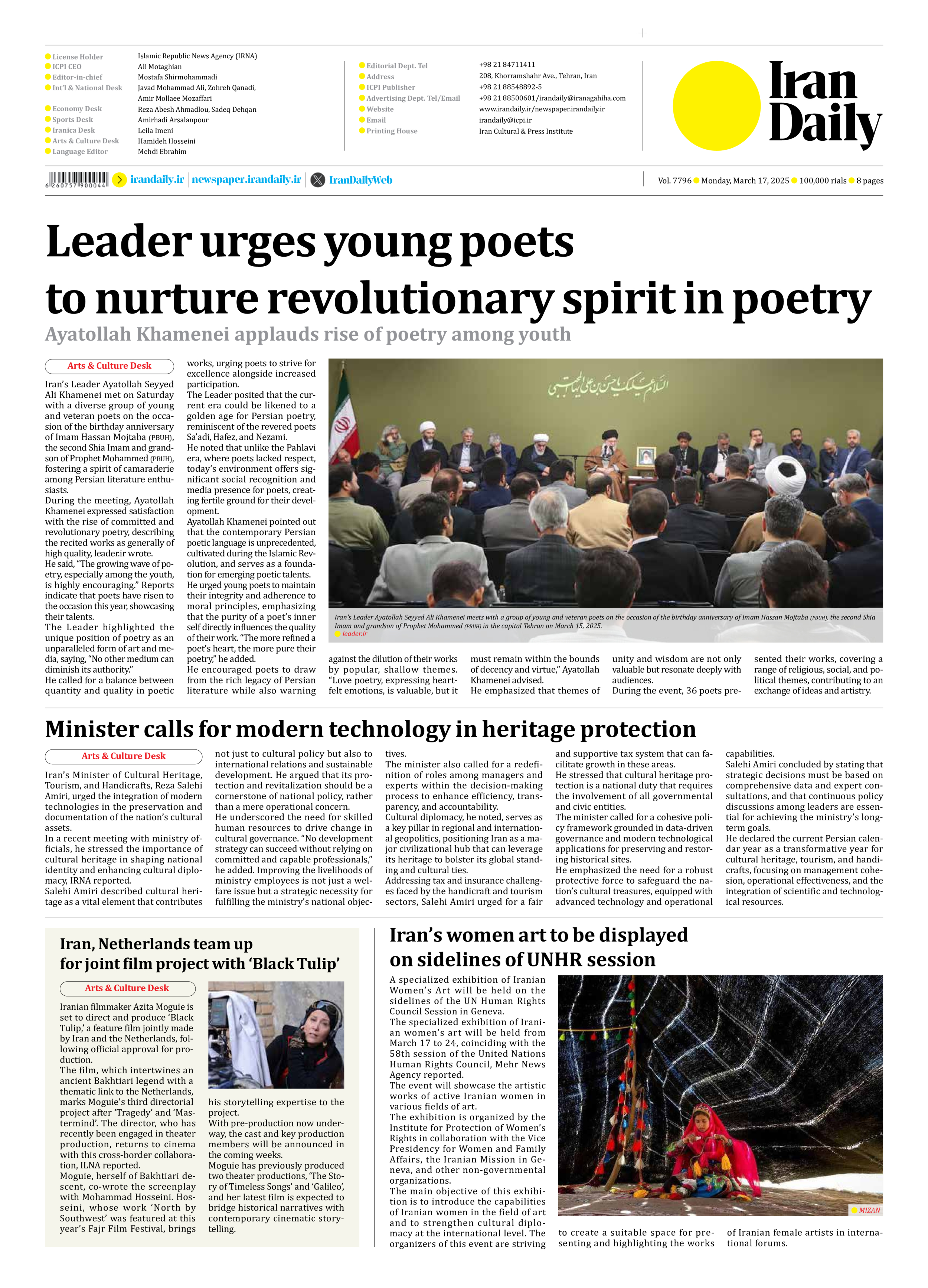
Minister calls for modern technology in heritage protection
Iran’s Minister of Cultural Heritage, Tourism, and Handicrafts, Reza Salehi Amiri, urged the integration of modern technologies in the preservation and documentation of the nation’s cultural assets.
In a recent meeting with ministry officials, he stressed the importance of cultural heritage in shaping national identity and enhancing cultural diplomacy, IRNA reported.
Salehi Amiri described cultural heritage as a vital element that contributes not just to cultural policy but also to international relations and sustainable development. He argued that its protection and revitalization should be a cornerstone of national policy, rather than a mere operational concern.
He underscored the need for skilled human resources to drive change in cultural governance. “No development strategy can succeed without relying on committed and capable professionals,” he added. Improving the livelihoods of ministry employees is not just a welfare issue but a strategic necessity for fulfilling the ministry’s national objectives.
The minister also called for a redefinition of roles among managers and experts within the decision-making process to enhance efficiency, transparency, and accountability.
Cultural diplomacy, he noted, serves as a key pillar in regional and international geopolitics, positioning Iran as a major civilizational hub that can leverage its heritage to bolster its global standing and cultural ties.
Addressing tax and insurance challenges faced by the handicraft and tourism sectors, Salehi Amiri urged for a fair and supportive tax system that can facilitate growth in these areas.
He stressed that cultural heritage protection is a national duty that requires the involvement of all governmental and civic entities.
The minister called for a cohesive policy framework grounded in data-driven governance and modern technological applications for preserving and restoring historical sites.
He emphasized the need for a robust protective force to safeguard the nation’s cultural treasures, equipped with advanced technology and operational capabilities.
Salehi Amiri concluded by stating that strategic decisions must be based on comprehensive data and expert consultations, and that continuous policy discussions among leaders are essential for achieving the ministry’s long-term goals.
He declared the current Persian calendar year as a transformative year for cultural heritage, tourism, and handicrafts, focusing on management cohesion, operational effectiveness, and the integration of scientific and technological resources.







